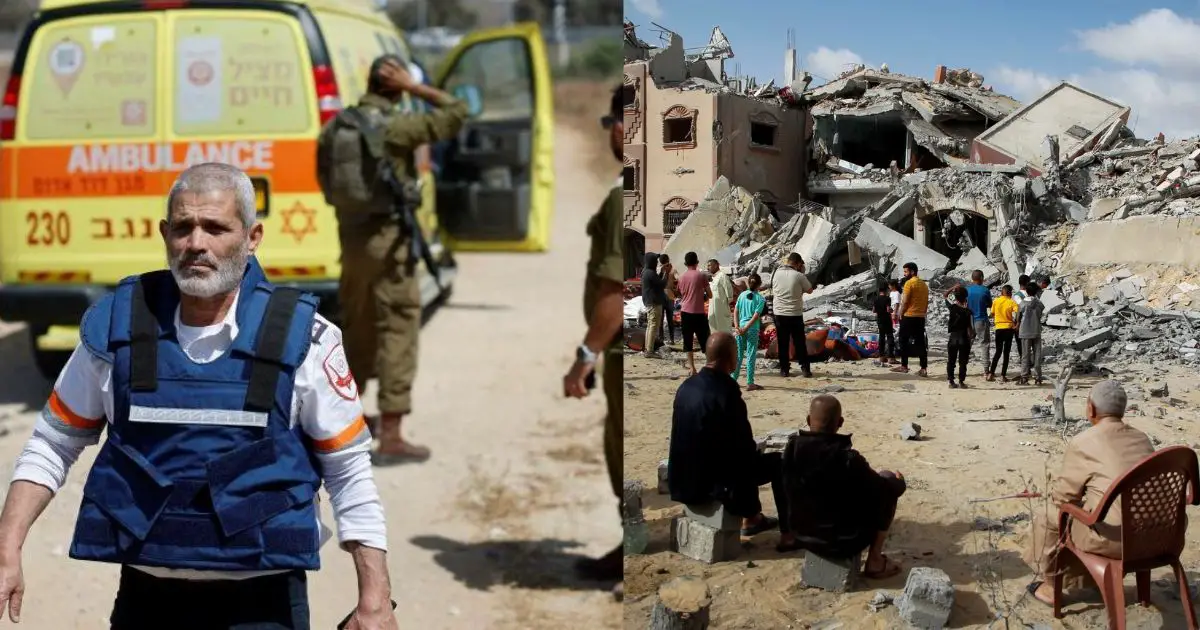The recent closure of the Kerem Shalom crossing by Israel in response to Hamas firing rockets underscores the ongoing volatility in the region and the challenges to achieving lasting peace.
Background
The roots of the Israel-Gaza conflict trace back to the mid-20th century, with the establishment of the state of Israel in 1948 and subsequent displacement of Palestinians. Over the years, territorial disputes, security concerns, and the lack of a comprehensive peace agreement have fueled cycles of violence between Israeli forces and Palestinian factions, particularly Hamas.
Kerem Shalom Crossing: Lifeline for Gaza
Kerem Shalom is a vital crossing point between Israel and the Gaza Strip, facilitating the movement of goods, humanitarian aid, and people in and out of the besieged territory. Its closure by Israeli authorities in response to security threats is a significant development with far-reaching implications for the residents of Gaza, already grappling with dire living conditions exacerbated by years of blockade and conflict.
Hamas Rocket Attacks: Escalating Tensions
The decision to shut down the Kerem Shalom crossing came after Hamas launched a barrage of rockets towards Israeli territory, prompting retaliatory airstrikes by the Israeli military. The exchange of fire represents yet another escalation in hostilities, with both sides blaming each other for the violence and casualties that ensued.
Humanitarian Crisis in Gaza
The closure of Kerem Shalom exacerbates an already dire humanitarian situation in Gaza, where the population suffers from high unemployment, poverty, and inadequate access to essential services such as healthcare and education. The blockade imposed by Israel, in conjunction with restrictions imposed by Egypt, has severely limited the flow of goods and stifled economic development, leaving Gazans dependent on aid to survive.
International Response
The latest flare-up in violence has drawn condemnation from the international community, which has called for restraint and a de-escalation of tensions. Diplomatic efforts, including mediation by regional and international actors, have thus far failed to produce a lasting ceasefire or address the underlying grievances driving the conflict.
Challenges to Peace
Achieving a durable peace between Israel and Gaza remains a formidable challenge, complicated by deep-rooted political, territorial, and religious issues. Efforts to resume negotiations and reach a comprehensive settlement have been hindered by mutual mistrust, competing territorial claims, and divergent visions for the future of the region.
Human Cost of Conflict
Amidst the geopolitical maneuvering and military confrontations, it is essential not to lose sight of the human cost of the conflict. Civilians on both sides continue to bear the brunt of the violence, facing death, injury, displacement, and trauma as a result of the fighting. Children, in particular, are vulnerable to the physical and psychological toll of war, with long-lasting implications for their well-being and future prospects.
Path to Peace
Despite the challenges, there remains hope for a peaceful resolution to the Israel-Gaza conflict. A sustainable ceasefire, accompanied by confidence-building measures and a commitment to dialogue, could pave the way for renewed negotiations and eventual reconciliation. Key stakeholders, including Israel, Hamas, the Palestinian Authority, and the international community, must demonstrate the political will and leadership necessary to break the cycle of violence and pursue a just and lasting peace.
Conclusion
The closure of the Kerem Shalom crossing following Hamas rocket attacks underscores the volatile nature of the Israel-Gaza conflict and the urgent need for a comprehensive and sustainable solution. As both sides continue to engage in military confrontations, civilians pay the price, suffering the consequences of violence, displacement, and deprivation. Only through dialogue, diplomacy, and a genuine commitment to peace can the cycle of conflict be broken, and the aspirations of Israelis and Palestinians for security, dignity, and self-determination be realized

